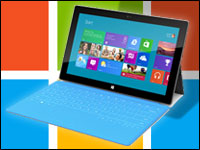
Based on recent statistics, one would think Houston is the mobile-commerce capital of the United States.
Shortly before the Thanksgiving holiday, the Interactive Advertising Bureau released its list of mobile-savvy cities. Houston was ranked No. 1, followed by Seattle-Tacoma, San Francisco, Los Angeles and New York City.
Then, on Thanksgiving Day, PayPal revealed its statistics for activity during the day. Among these, Houston was the city in which shoppers made the most mobile purchases, followed by Los Angeles, Chicago, Miami and New York.
It would be easy to surmise from these separate statistics that mobile commerce — and by extension, mobile CRM — was evolving along geographic lines. In other words, that vendors and companies would have to pay attention to local tastes and demands for their mobile CRM operations, much as they do for local search and marketing.
Many Factors, Not Just the Obvious Ones
In fact there is some truth to that — clearly, some cities are more advanced in their mobile usage and companies would be well advised to put in place, say, geolocation strategies. However, that is not the only — or even primary — lesson that should be taken away from these numbers.
Instead it is this: geography is only one piece of what is important to making mobile CRM work, said Derek Bonney, managing director of Manifest Digital. The secret to B2C mobile CRM success entails taking into account a wide range of factors, including hard ones such as demographics and softer ones, such as where the consumer is likely to be when interacting with the brand.
“The age range of users and the prominence of the younger, more affluent demographic using mobile devices and mobile shopping per the IAB report and the Top 15 cities identified doesn’t surprise me,” he told CRM Buyer. This is especially true when you consider that this audience tends to be found in larger city areas where income levels are typically above average, he added.
“With approximately 75 percent mobile penetration in the U.S. and over 50 percent of these users owning a smartphone, the bottom line is that retailers everywhere will need to embrace the mobile shopper,” Bonney said. “But one’s mobile strategy also needs to consider the physical factors of the shopper. Whether they are in-store, at home or on the go, the consumer will have different experience values in each of these situations, and the mobile presence must take this into consideration to create the optimal experience.”
Companies, particularly retailers, are becoming more aware of this need thanks to statistics on multi-screen use. Numerous studies show, for example, that shoppers will use tablets in the evening when they are settled in on the sofa, but smartphones during the day, as they walk around the mall.
They are also learning to tweak the content to appeal to mobile shoppers. Flash sites are taking advantage of smartphones’ always-there presence is consumers lives to goose sales, said Melanie St. Jean, a fashion and retail professor at Johnson & Wales University.
“They have learned how to do this with their online offerings and do it very well,” she told CRM Buyer. “They grab the attention of the consumer that wants something special that not everyone else has. Consumers learn that this is a site that they always have to be watching.”
Back to Basics
Until recently, mobile sites found it difficult enough to deliver on the technology, much less the psychology.
This Thanksgiving-Black Friday holiday week, though, appears to be a tipping point in that respect. “Compared to last year, I didn’t see or hear of any major crashes or glitches for online sites — even as mobile commerce clearly increased,” Barry Sloane, CEO of Newtek Business Services, told the E-Commerce Times.
One reason for that is that more websites are being hosted in the cloud rather than on a server with a shared plan, Sloane said. “It can make a difference in how the site handles increased traffic for days like Black Friday.”























































